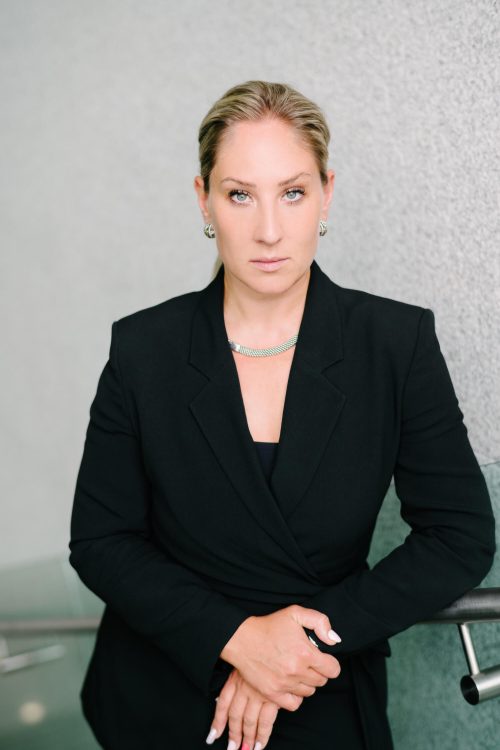Random breathalyzer tests
It’s that time of year again. As Canadians head to their office Christmas party and get a bit too full of the holiday cheer, one federal party is suggesting that police should have a more power to pull over festive motorists and test to see just how full of Christmas spirit they really are.
It’s New Democratic backbench MP Tarik Brahmi who introduced legislation this time, with the goal of giving police the power to pull over drivers at random and subject them to a breathalyzer test.
The meat of C-556 reads that a peace officer may “require the person who is operating a motor vehicle or has the care or control of it, whether it was in motion or not, to provide forthwith a sample of breath.”
As Brahmi told the House of Commons when he introduced the bill, “this law will save lives throughout Canada by giving our police an additional tool in the fight against drinking and driving.”
As altruistic a sentiment as that may be, it is hardly a new one. Brahmi’s idea has been declared a constitutional non-started by the Supreme Court time and time again.
Governments have had varying levels of roadside check programs on the books for decades – most notably Ontario’s R.I.D.E (Reduce Intoxicated Driving Everywhere) program which started in 1977 – empowered by federal legislation that states police can apply the test to any driver suspected of haven been drinking. But, pretty much since those laws came into force, governments have been trying to take it further.
But the courts have been pretty clear: there are constitutional hurdles.
In the 1990 case R. v. Ladouceur, the Supreme Court ruled that “while the routine check is an arbitrary detention in violation of s. 9 of the Charter.” However, the courts have consistently maintained that the violation doesn’t actually warrant nullifying the law. “The infringement is one that is reasonable and demonstrably justified in a free and democratic society,” concluded the court.
Section 254(3) of the Criminal Code mandates that reasonable and probable grounds must be present in order for police to apply the test. Justice Claire L’Heureux-Dubé wrote in R. v. Bernshaw that “’reasonable and probable grounds’ is not only a statutory precondition to a breathalyzer demand but also a touchstone of the Charter.”
But even so, virtually every year there is a fight – usually driven by anti-drunk driving crusaders Mothers Against Drunk Driving (MADD) – to stiffen regulations and give police arbitrary powers to stop and test motorists.
Edward Prutschi, partner at Bytensky Prutschi Shikhman, points out that this proposal has had several champions in the past – including the Conservative government. Justice Minister Rob Nicholson sent out the idea in 2009, before abandoning it in the face of its obvious unconstitutionality.
“People float this idea all the time,” says Prutschi. But he says the courts have been very clear: “it would not be constitutionally permissible.”
He says the only saving grace for R.I.D.E is, counterintuitively, its ubiquitous nature, and its limited scope. That is: it is only at certain locations, at certain times of year, and it applies to every driver that passes through equally. Police are allowed to stop everyone, but can only apply the test to those who appear reasonably intoxicated. That arbitrariness is what the Supreme Court deemed to be a violation of s.9, but allowed it to continue.
And the courts have been remarkably clear on what constitutes reasonable ground to suspect that a driver is drunk – namely, the smell of alcohol, slurred speech, erratic driving, and bloodshot eyes.
“There are an enormous number of cases that describe how much evidence an officer needs to have, and what sort of evidence, to make either a roadside breath demand or the more intensive breathalyzer demand back at the station,” says Prutschi. “Judges and lawyers have sent countless hours and tens of thousands of cases across Canada in what it means for an officer to have reasonable grounds.”
That would all be moot, if this NDP proposal were to ever become law.
Whereas roadside stops have been well-regulated, “this proposal goes well beyond that,” Prutschi says. “The randomness of this proposal is what’s new and unique.”
Brahmi told the House that he hopes the government will double back on its support for the idea, and help his bill become law.
====================
Edward Prutschi is regularly featured on Canada’s national media circuit, and is a Toronto Criminal Lawyer and partner at Bytensky Prutschi Shikhman criminal law firm.
Don't Let A Criminal Charge Destroy Your Life
Get 1 Hour Consultation!
Register with us to schedule a free consultation
Our Criminal Defence Lawyers

Boris Bytensky LL.B

Sonya Shikhman LL.B

Brittany Smith J.D.


